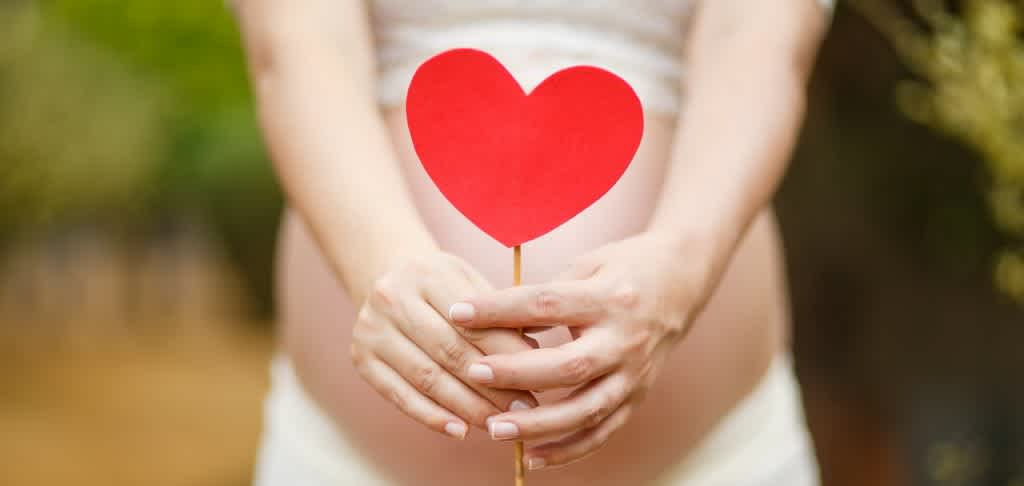
Women need vitamins throughout life for good health – especially during the prenatal stage of pregnancy. Health professionals often advise mamas-to-be to boost their intake of certain vitamins because a baby developing in the womb can only get nutrients, like vitamins, from the mother. If the mother is deficient in key vitamins, then the baby will likewise be deficient.
 Women need vitamins throughout life for good health – especially during the prenatal stage of pregnancy.
Women need vitamins throughout life for good health – especially during the prenatal stage of pregnancy.
Key prenatal vitamins include several B vitamins – B6, B9, and B12 – as well as vitamin D. So if you’re pregnant – but deficient in these vitamins – then your baby’s development may be affected. Certain vitamin deficiencies can lead to an infant being born with spinal cord defects or a low birth weight – among many other possible conditions.
Here, we’ll take a closer look at why these vitamins – the B vitamins and vitamin D – are absolutely vital for the healthy development of a baby-in-the-womb.
B VITAMINS
 To help ensure you deliver a healthy baby, make sure you don’t have B vitamin deficiencies.
To help ensure you deliver a healthy baby, make sure you don’t have B vitamin deficiencies.
Normal prenatal development requires three B vitamins: vitamin B6, B9 (or folic acid), and B12. This is because all three of these B vitamins are “co-enzymes.”
Enzymes help speed up chemical reactions in all of your cells – as well as the cells of a developing baby. Human life wouldn’t be possible without enzymes since chemical reactions would slow to a crawl, so your body couldn’t really get anything done.
Co-enzymes – like the B vitamins – are “helper molecules” that certain enzymes need to work properly. If these enzymes don’t work right – because of a vitamin B deficiency, for example – then fetal development can go awry.
For instance, the baby’s nervous system might not develop correctly if the mother is deficient in vitamin B6. And the baby might be born with neural tube defects if the mother doesn’t have high enough levels of B9 – or folic acid – during pregnancy (neural tube defects are defects in a baby’s spine, spinal cord, or brain).
As for vitamin B12? Scientific studies link B12 deficiency during pregnancy with mistakes in brain development in the unborn baby.
How else can low B12 levels negatively affect a pregnancy? A large review of data from around the world indicates that low levels of B12 are associated with a 21% increase in the risk of delivering a baby prematurely. (And, troublingly, prematurity is one of the most significant causes of disabilities among children.)
VITAMIN D
 Keep your baby safe by getting enough vitamin D: vitamin D deficiency during pregnancy can increase the risk of rickets in a baby.
Keep your baby safe by getting enough vitamin D: vitamin D deficiency during pregnancy can increase the risk of rickets in a baby.
Vitamin D is known as the “sunshine vitamin,” but things aren’t so bright when vitamin D deficiency rears its troublesome head: women who are vitamin D deficient during pregnancy are more likely to give birth to infants who are also vitamin D deficient. And – alarmingly – vitamin D deficiency during infancy can not only hinder normal skeletal growth, but it can also increase the risk of rickets.
There’s more, too, when it comes to vitamin D and prenatal development. Medical research suggests that a mother’s vitamin D deficiency during pregnancy can have long-lasting impacts on the skeletal health of her child: in one study, 9 year old children whose mothers were vitamin D deficient during pregnancy had a reduced bone size and bone-mineral content, instead of robust, strong bones.
All of this points to the crucial role that vitamin D plays in prenatal and postnatal development. So if you’re pregnant (or planning for pregnancy), make sure your vitamin D levels are where they should be with an at-home vitamin D test.
Conclusion
Various prenatal vitamins – like B vitamins and vitamin D – are absolutely essential for the healthy development of a baby. So if you’re deficient in any of these vitamins during pregnancy, a variety of health complications can result in your infant. However, you don’t have to guess if you’re deficient in these vitamins. For example, you can take a simple test – at-home – to check your own vitamin D levels.
Spotlight on
Featured content

86% of cancers aren't caught by recommended screenings. See what they're missing with a single blood draw.
Save $100 now
Explore Everlywell








